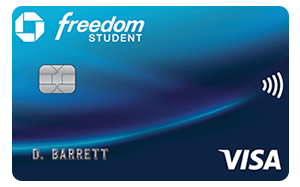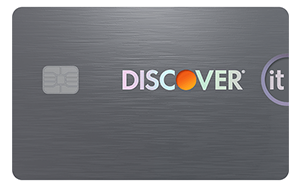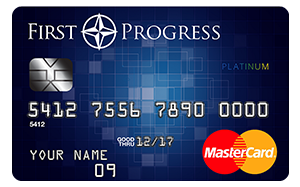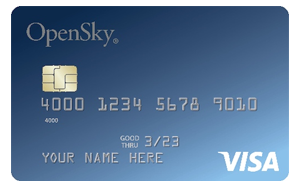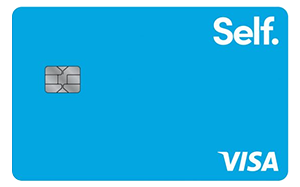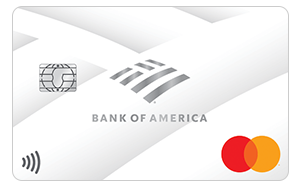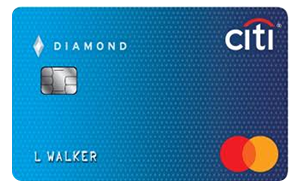At 19 years old, you’re old enough to open your own credit account, which means you can start working toward a good credit score. However, even though you can start establishing credit at any age, there are a few special challenges you’ll need to overcome when building your credit for the first time while you’re still a teenager.
The tips in this article will help you get on the right track and secure a good credit score going into your 20s.
Table of Contents
1. Establish financial independence
Your overall financial health plays a major role in determining what loans and credit cards you can qualify for and how well you’re able to manage your debts once you have them.
Take these steps to get your finances in order while you’re still a teenager:
Get a job
Having a steady income is possibly the best thing you can do to become financially stable. It’s also necessary if you want access to the following types of credit at 19 years old:
- Credit cards: Even though you technically only need to be 18 years old to get a credit card, there are special restrictions until you turn 21. You won’t be able to get a credit card at 19 unless you have a reliable source of income or you apply with a cosigner. 1
- Loans: Lenders often look at your debt-to-income ratio when deciding whether to give you a loan. If you have no job and no income, lenders won’t want to extend you credit because they won’t have any confidence that you’ll actually be able to repay it.
If you’re a student and can’t commit to working a full-time job, consider finding a part-time job. Even part-time employment may be enough to qualify you for certain types of credit cards (which we’ll describe in more detail below). 2
Open a bank account
If you haven’t done so already, open a bank account in your name. This won’t directly affect your credit score, but having your own checking and savings accounts will help you keep your finances in order and show future lenders that you know how to control your spending.
Get an apartment
By default, your living situation isn’t something that either FICO or VantageScore (the companies that produce credit scores) will consider when calculating your score.
However, if you cover your own living expenses (regardless of whether you live on your own, on campus, or in an apartment with roommates), then you may be able to get credit for paying your rent or utility bills on time. We’ll explain how in the next section.
2. Report your rent and bill payments
You won’t automatically build credit by paying your rent or utility bills because landlords and utility providers don’t usually report your payments to the credit bureaus that produce your credit reports. However, these payments will contribute to your credit score if you do manage to get them included on your credit reports.
Fortunately, certain companies can add payments for the following services:
- Rent
- Utilities (e.g., water, electricity, and gas)
- Phone service
- Cable
To get credit for your on-time rent payments, you can sign up for a rent-reporting service like Rental Kharma or RentReporters. To build credit by paying your utility bills, sign up for a paid bill-reporting service or try Experian Boost to get your bills added to your credit reports for free.
Boost your credit for FREE with the bills you're already paying

Boost your credit for FREE with the bills you're already paying
- Experian Credit Report and FICO® Score updated every 30 days on sign in
- Instantly increase your credit scores for FREE with Experian Boost™
- Daily Experian credit monitoring and alerts
3. Get a credit card and use it wisely
Many people start out by building credit with a credit card. As mentioned, to be eligible for a card at 19, you’ll need to either apply with a cosigner or show proof of income. You’ll then have a few options to choose from.
Credit cards for 19 year olds
Unless you already have an established credit history, you’ll probably find it difficult to qualify for most unsecured credit cards. However, you may be eligible for the following credit cards even with an insufficient credit history or no credit score at all:
- Secured credit cards: These are credit cards that require a security deposit. Because they’re lower risk for lenders, you can get a secured card at 19 even with no credit history.
- Student credit cards: If you’re currently enrolled in college, then a student credit card could be a good option for you. These cards are designed for young people with limited credit histories.
- Retail credit cards: Store credit cards are usually easier to get than standard unsecured credit cards. This makes them a good choice for building credit at 19, when other card issuers might deny your application.
These cards are a popular tool for building credit in your teens or early 20s. If you want to start building credit at 18, for instance, they’re one of your only realistic options.
Below you’ll find the best credit cards for beginners currently on the market and information about how to apply:
| Credit Card | Best For | Credit Score | Annual Fee | Welcome Bonus | |
|---|---|---|---|---|---|
| No Credit | 300–669 | $0 | |||
| Rewards | 580–739 | $0 | Cashback match | ||
| Travel | 580–739 | $0 | |||
| Visa | 580–739 | $0 | $50 Bonus | ||
| International Students | 580–739 | $0 | |||
| Credit Card | Best For | Credit Score | Annual Fee | Welcome Bonus | |
|---|---|---|---|---|---|
| Secured | 300–669 | $0 | Cashback Match | ||
| Unsecured (No Deposit) | 300–669 | $39 ($0 for the first year if you set up autopay) | |||
| Beginners | 300–669 | $49 | |||
| Students | 580–739 | $0 | Cashback match | ||
| No Annual Fee | 300–669 | $0 | |||
| High Approval Odds | 300–669 | $35 | |||
| Building Credit | 300–669 | $0 | |||
| Credit Card | Best For | Credit Score | Annual Fee | Welcome Bonus | |
|---|---|---|---|---|---|
| No Credit Overall | 300–669 | $0 | Cashback Match | ||
| Starters | 300–669 | $49 | |||
| Students | 580–739 | $0 | Cashback match | ||
| No Credit Check | 300–669 | $35 | |||
| No Annual Fee | 300–669 | $0 | |||
| Unsecured (No Deposit) | 300–669 | $75 for the first year ($48 after) | |||
| High Credit Limit | 300–669 | $39 ($0 for the first year if you set up autopay) | |||
| Instant Approval | 300–669 | $75–$99 the first year, then $99 annually | |||
| Beginners | 300–669 | $0 | |||
| Credit Card | Best For | Credit Score | Annual Fee | Welcome Bonus | |
|---|---|---|---|---|---|
| Secured Overall | 300–669 | $0 | Cashback Match | ||
| No Credit Check | 300–669 | $35 | |||
| Beginners | 300–669 | $25 | |||
| No Annual Fee | 300–669 | $0 | |||
| Bad Credit | 300–669 | $49 | |||
| Rebuilding Credit | 300–669 | $0 | |||
Whatever credit card you choose, make sure to use it responsibly. Maxing out your card or making late payments on your credit card bill will do major damage to your credit score.
Other credit-building tools you can try out
In addition to getting a credit card, you can also try other credit-building tools to start establishing a credit history at 19. For example, you can take out a credit-builder loan (a special type of loan that’s specifically designed to help beginners improve their credit).
You can also ask a parent to add you as an authorized user to their credit card. This is a good option if you have trouble getting approved for your own card. Being an authorized user will improve your credit score and make it easier to get approved if you try again a few months down the line.
4. Start monitoring your credit
As you enter adulthood, get in the habit of regularly checking your credit reports and credit scores. Credit reporting errors happen all the time, and you need to make sure you get them corrected early so that they don’t make it hard to access credit when you really need it.
Note that your credit score won’t usually show up on your credit report. You’ll need to access your scores and reports separately:
- Credit scores: You can check your credit score by reviewing your credit card billing statement or account information (if you have a creditor that provides credit scores), signing up for a credit-monitoring service, or purchasing your score directly from FICO.
- Credit reports: You have the right to review your credit reports with each of the three main credit bureaus (TransUnion, Equifax, and Experian) free of charge. You can request your free credit reports at AnnualCreditReport.com.
Your credit reports aren’t the same as your credit scores
If you don’t fully understand the difference between credit scores and credit reports, take some time to review that now. You’ll need to understand this distinction if you’re going to build your credit effectively. To sum the difference up very briefly, just remember: the information on your credit reports is used to calculate your credit scores.
5. Protect your credit going into your 20s
As you approach the next stage of your life, it’s important to protect the credit you’ve built at 19. Follow these steps to maintain healthy finances and continue building credit at 20 years old and beyond:
- Get ready to start paying off student loans: If you took out federal or private student loans to go to college, make sure you understand your repayment terms so that you can budget accordingly. While paying off student loans can help your credit, late payments will cause a drop in your credit score.
- Start saving money: 19 years old is a good age to begin putting away savings, if you can afford to do so. Having savings will help you later in life if you ever face financial hardship or you want to put a deposit down on a car or house.
- Keep your credit accounts open: If you have a credit card you’re not using, keep it open unless you can’t afford to do so (e.g., the annual fees are too high). Closing a credit card will hurt your credit by increasing your debt-to-credit ratio, whereas keeping it open will improve your credit score over time.
Although there’s no rush for you to open lots of different credit accounts at 19, starting to establish credit while you’re young is a smart move. Doing so now will give your credit time to age and improve as you adjust to adulthood.
Takeaway: You can build credit at 19 by gaining financial independence and getting information added to your credit file.
- The first thing you should do if you want to build credit at 19 is establish healthy finances. This involves getting a job or other source of income.
- If you’re covering your own living expenses, you can get credit for paying your rent and utility bills by signing up for a bill-reporting service.
- You can use a credit card to build credit at 19 as long as you have a steady source of income or a cosigner.
- To track your progress and prevent damage to your credit from credit-reporting errors, be sure to regularly check your credit reports and credit scores.
- To prepare for financial changes in your 20s and protect the credit you’ve built at 19, budget for loan repayments, start saving money, and keep credit card accounts open.




